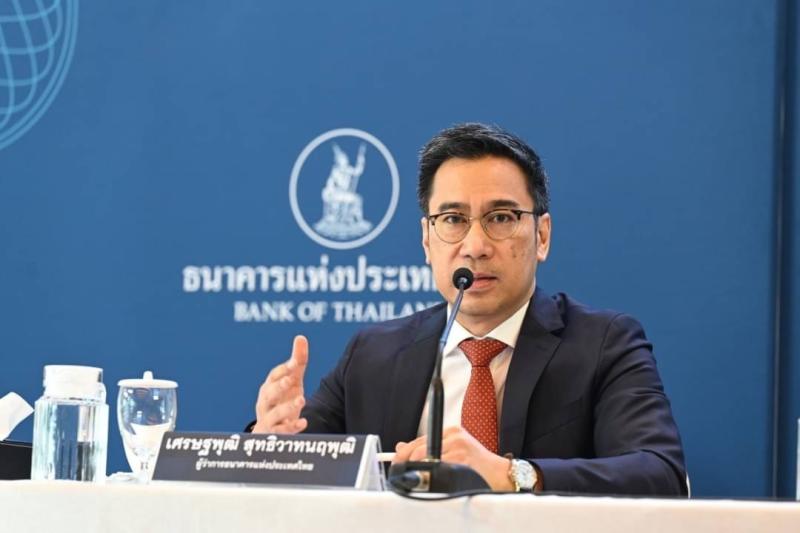The Bank of Thailand’s Monetary Policy Committee decided on Wednesday to lower the policy interest rate by 25 basis points to 2%, effective immediately.
Sakkapop Panyanukul, the Monetary Policy Committee’s secretary, stated that most members supported the decision. The new rate, now at its lowest in two years, aligns with current economic and inflation trends and aims to maintain financial system stability.
He explained that economic growth is falling short of projections, highlighting that one member voted to keep the rate unchanged to preserve flexibility in handling future uncertainties.
The majority of the committee believes this rate cut will ease financial pressures without jeopardizing the long-term health of the financial system. Sakkapop noted that the revised rate supports growth forecasts while remaining adaptable to potential challenges.
Though economic growth lags behind estimates, members acknowledged positive momentum in tourism and exports.
However, growth is expected to remain below projections due to structural issues in industries like automobile manufacturing, petrochemicals, and construction materials, coupled with rising competition from imports.
Sakkapop added that private sector consumption is showing signs of improvement. Exports, particularly in technology and processed agricultural products, are also expected to see further gains.
The Thai baht started Wednesday at 33.53 against the US dollar, just slightly weaker than Tuesday’s close of 33.50.
Over the night of February 26, the baht traded between 33.65 and 33.85 per US dollar, softening due to the US dollar’s strengthening.
The dollar’s rise followed comments from former US President Donald Trump, who indicated the US government would increase import tariffs on goods from Mexico and Canada after prior delays. This announcement caused the Mexican peso (MXN) and Canadian dollar (CAD) to lose value.
Despite this, higher gold prices (XAUUSD), which rebounded to around $2,950 per ounce, supported the baht.
A weaker baht has mixed effects on Thailand’s economy, particularly in the tourism and real estate sectors. However, in Pattaya, a major tourism and property investment hub, the depreciation could benefit the market.
Foreign tourists may find their money goes further, potentially boosting tourism revenue and encouraging longer visits.














